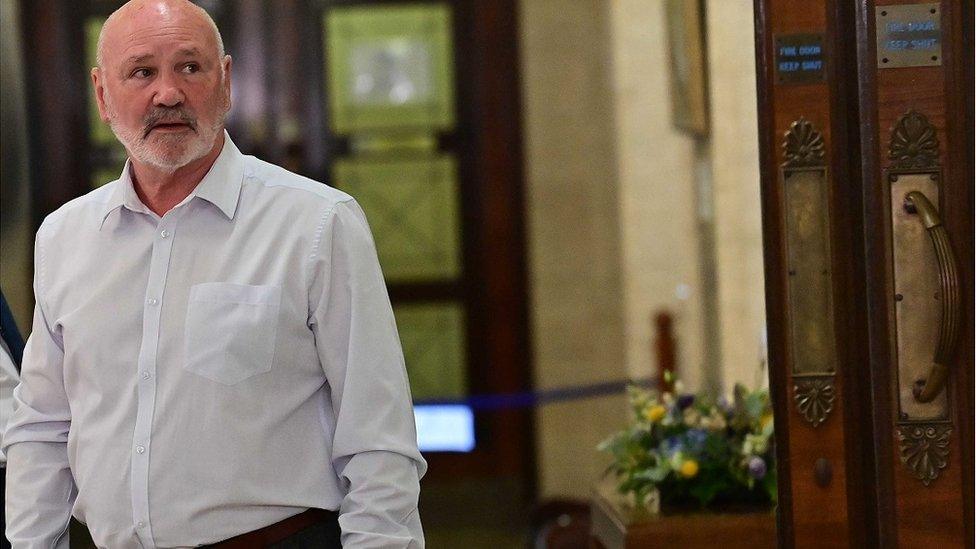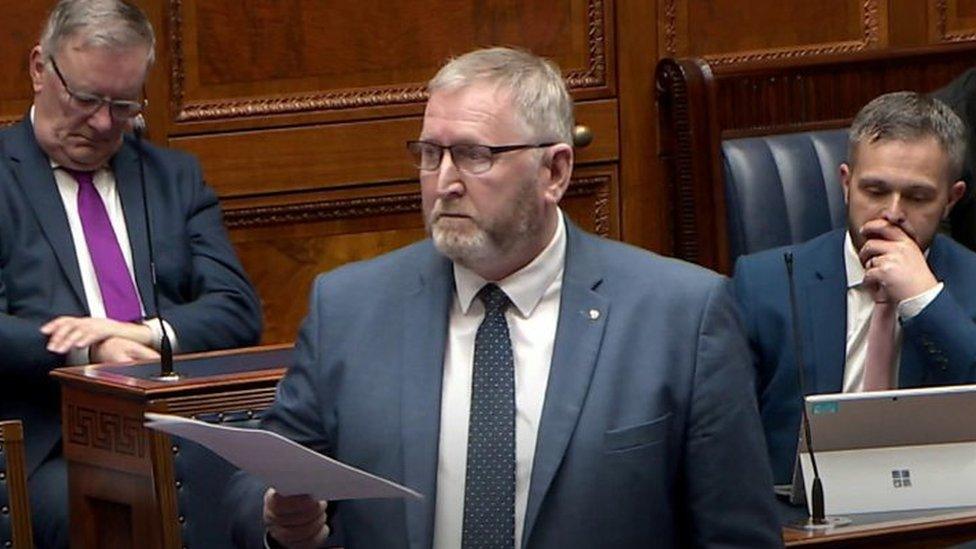Doug Beattie: No further action over 'whine like a girl' remark
- Published

UUP leader Doug Beattie landed himself in hot water with some of his comments
No further action will be taken against UUP leader Doug Beattie after he accused the DUP of wanting to "whine like a girl from the sidelines", outgoing Speaker Alex Maskey has said.
Mr Beattie made his comments during a recall of Stormont's Northern Ireland Assembly on Wednesday.
Mr Maskey was asked whether the remarks required some kind of sanction.
In a letter to MLAs he said he acknowledged Mr Beattie had apologised.
However, he added that if the Assembly was "conducting normal business, I would have considered imposing a sanction on Mr Beattie".
'Should be expected to know better'
He said Mr Beattie's remarks "clearly fell well short" of standards.
"Having had to address similar issues in the assembly on a previous occasion, it is disappointing that a party leader, who should be expected to know better, made remarks of this nature in the chamber."
Doug Beattie under fire for 'whine like a girl' remarks
Earlier this year, Mr Beattie apologised for a number of historical tweets as well as for a joke he tweeted about the wife of DUP assembly member Edwin Poots.
His remarks this week had drawn criticism from other political parties, including Mr Poots who told him that "whenever you are a repeat offender, repeat apologies don't cut it".

Alex Maskey said if the Assembly had been sitting normally, he would have considered imposing a sanction on Mr Beattie
Alliance member Sorcha Eastwood said the comments fell short of the standard of language that assembly members should use, adding that it was unparliamentary and that "women do belong in this chamber".
In Mr Maskey's letter he said MLAs had an entitlement to freedom of expression but that they had to use their privilege within the standards of debate expected.
"The assembly should demonstrate leadership and its debates should seek to set an example, and a higher standard, to the wider community," he added.
"Much has been done to seek to increase the representation of women in the Assembly in recent years.
"While progress has been made, we still have much further to go.
"Therefore, I think it is important that I set out clearly that remarks which rely on demeaning language or outdated phrases and stereotypes, in relation to gender or any other characteristic, are not appropriate and are contrary to the standards which should be set in the Assembly chamber."
- Published7 December 2022

- Published24 January 2022

- Published7 December 2022

- Published3 December 2022
